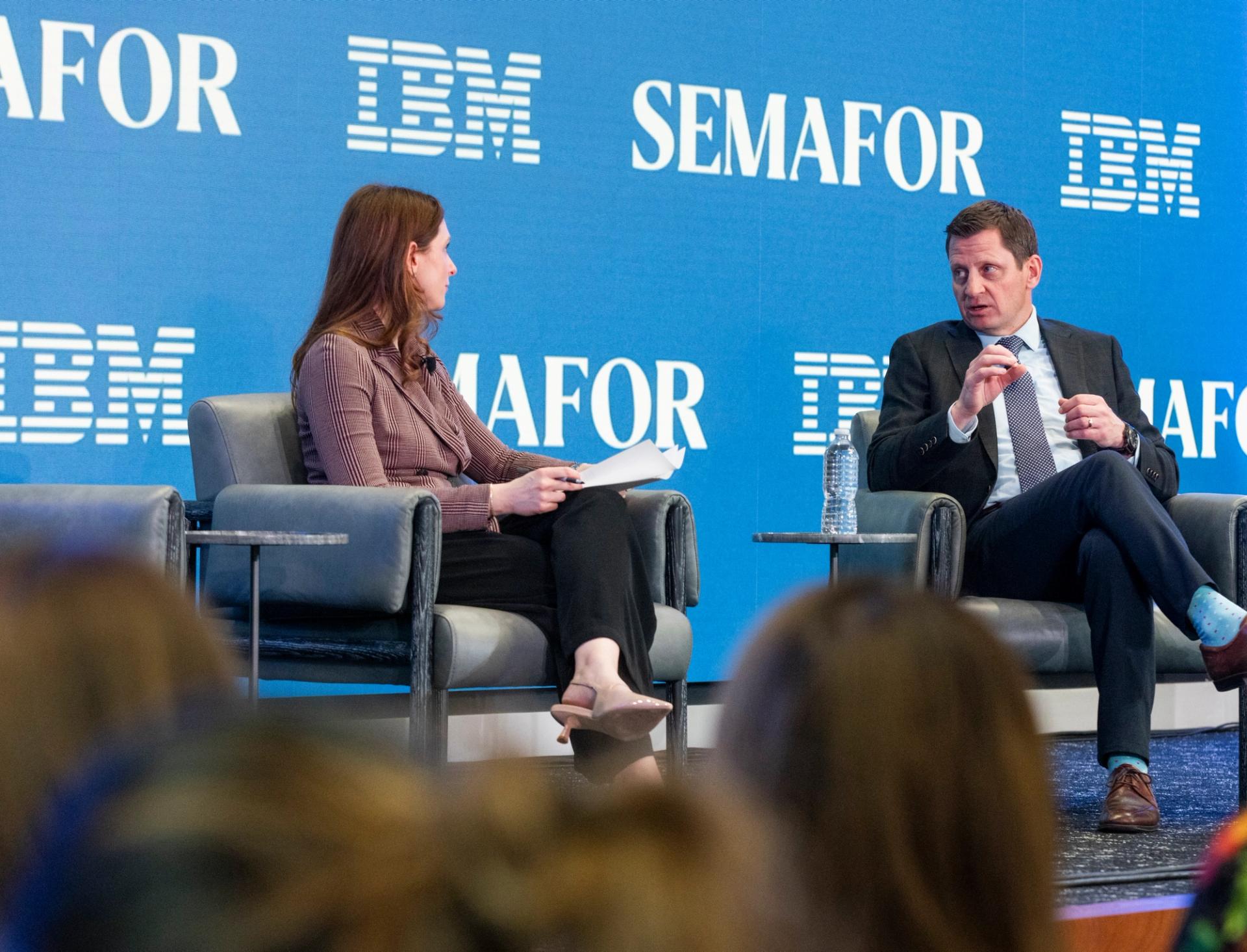Sponsor Message
Semafor’s editorial staff had no role in this post’s creation.
The News
This March, the EU AI Act received the final stamp of approval after three years of negotiations, setting a global standard for AI regulation. As policymakers around the world consider similar approaches, business leaders have more clarity about how they can adopt AI in safe, responsible ways. The conversation around AI has shifted from hypotheticals to reality, and the potential for economic growth is coming into focus.
AI will reshape the world in both big and small ways — from addressing deadly diseases and tackling climate change to smaller daily tasks that help humans be more efficient and intentional with their time.
And while the risks of AI are very real, it is critical to address issues like disinformation, bias, and other harmful content with the right approaches to governance and open AI.
SIGNALS
The EU AI Act takes the right approach to AI regulation
This legislation should serve as a blueprint globally. Smart regulation should be based on three core tenets: 1. regulate AI risk, not algorithms, 2. make AI creators and deployers accountable, not immune to liability, and 3. support open AI innovation, not an AI licensing regime.
The EU AI Act addresses these key areas and provides a much-needed framework for ensuring transparency, accountability, and human oversight in developing and deploying AI technologies. The risk-based approach means AI will be regulated at the use case level, where humans are interacting with the technology. Uses with increased risk, like mortgage approvals, will be subject to stricter regulations than low-risk uses like shopping chatbots — which ultimately leads to faster adoption and economic benefits.
Onstage at Semafor’s World Economy Summit, Rob Thomas, IBM’s SVP and Chief Commercial Officer, reiterated this sentiment. ”We support the EU AI Act. I think they really got some things right. Things like regulating the use of AI instead of regulating the AI itself. To me, that’s fundamental.”

Responsible AI is vital for worldwide implementation
Well-governed AI is good AI. Those responsible for developing and deploying AI models have a responsibility to put these technologies into the world transparently and with purpose, and that means installing the right safeguards at every part of the AI lifecycle. Technology companies have a responsibility to pursue technical and governance solutions that address harmful AI-generated content, like deepfakes or disinformation.
To help guide companies through regulation, IBM watsonx.governance allows businesses to accelerate their AI governance: directing, managing, and monitoring their organization’s AI activities. It employs software automation to mitigate risks, manage policy requirements, and govern the lifecycle for both generative AI and predictive machine learning models.
At the World Economy Summit, Thomas encouraged companies to “be aggressive” in adopting AI while encouraging companies implementing new technologies to join IBM in being open and transparent with their underlying data.
“I believe to this day we’re the only technology company that has published the data sources that we use to train our AI. I think that’s a big statement. It was important to us that we put it out in the public domain, so people can see exactly what we’re using. Anyone can access it.
“It was our statement to say we’re doing things the right way. We’re confident that we’re doing it the right way. Companies that work with us can know that we stand behind it.”
For business leaders and governments, 2024 must be the year of AI adoption
AI has been at the forefront of the tech conversation for many years now, and it’s clear it will reshape the way people live and work. So what’s been keeping 40% of enterprises from actively deploying AI in their business?
The top barriers to adoption include limited AI skills and expertise, data complexity, and ethical concerns. While smart governance can address the ethical concerns around AI, model choice and open AI will help organizations sort through the complexity and choose the right AI for their needs. Providing model choice is critical to accelerating AI adoption. Different models will be better at some tasks than they are at other tasks. The best approaches will depend on the industry, domain, use case, and size of the model, meaning most will utilize many smaller models versus one larger model.
Open AI is inherently safer and more responsible given the wide ecosystem of people contributing. Open AI helps democratize access to models and research, harnesses the talent of a global and diverse community, ensures broader accountability, and provides built-in transparency.
AI systems are not one-size-fits-all, and model choice and healthy open ecosystems will help organizations adopt AI at scale — this year.
AI’s economic impact grows with governance, skilling, and hiring
The nature of work is changing as AI adoption increases. IBM’s Institute for Business Value (IBV) finds that executives estimate about 40% of their workforce will need to reskill over the next three years due to AI and automation.
Technology is evolving faster than many can follow, creating a gap between demand and skills. Leaders must now prioritize skills-first hiring and training and upskilling the existing workforce to thrive in the AI era. Industry has already started addressing workforce skills – IBM offers a free education program, IBM SkillsBuild, to help learners across the world access the latest in cutting-edge technology developments designed by IBM experts.
In April a coalition led by Cisco and joined by Accenture, Eightfold, Google, IBM, Indeed, Intel, Microsoft, and SAP announced a new consortium to tackle AI’s impact on the workforce. Responsible governance and smart regulation, model choice, open AI, and skilling initiatives are what will bring the AI era into reality. If business leaders and governments prioritize these issues, there will be widespread global economic benefits from AI in the next three years, with many more years of sustained growth and prosperity to come.


